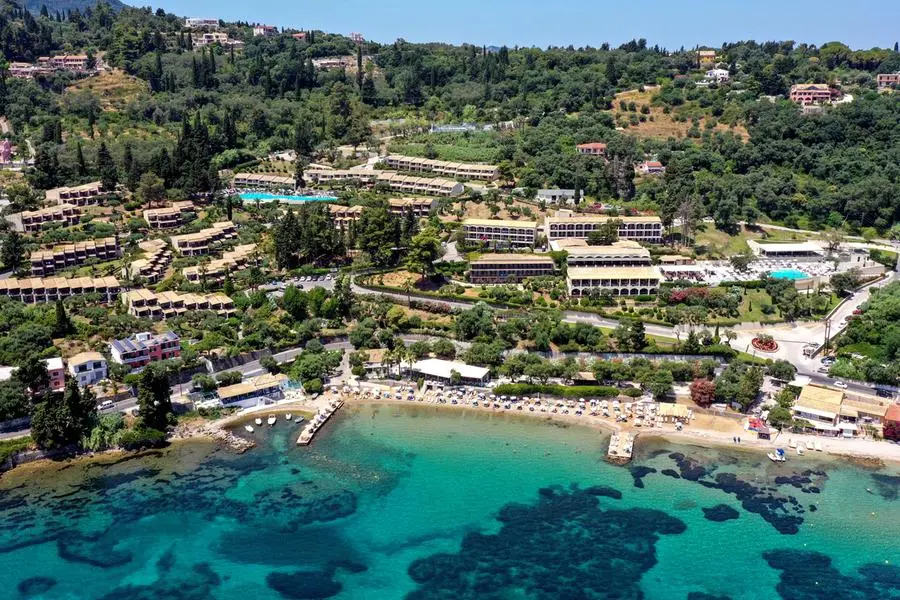PHOTO
ATHENS - Foreign visitors are flocking back to Greece's islands and ancient monuments, raising hopes for its vital tourism industry after a turbulent two years, though the impact of high inflation means a return to normal may still be some way off.
Greek tourism suffered its worst ever year in 2020, when the COVID-19 pandemic decimated global travel.
This year, despite a deepening global cost-of-living crisis and the continued presence of the virus, officials expect the sector to bring in 80% of the record 18 billion euros ($18.4 billion) of revenues generated in 2019.
"After two years of hard pandemic, we're glad to have our guests back in a normal season," said Babbis Voulgaris, a hotelier on the Ionian island of Corfu. "Occupancy is high for our hotels. For the rest of the summer, we're optimistic."
Tourism accounts for a fifth of the economy and one in five jobs, percentages that are even higher on Corfu.
The sector began to recover last year and is expected to keep growing for the next two years, according to the Greek central bank.
"We're very happy, satisfied," said Tourism Minister Vassilis Kikilias, while cautioning that the pandemic, economic crisis and the war in Ukraine made for a "a very, very difficult" backdrop.
Grappling with soaring energy prices and other inflation exacerbated by the war, as well as labour shortages, Voulgaris - who heads the Corfu hoteliers' association and sits on the board of tourism confederation SETE - agreed that the sector still faced "a lot of problems."
Michalis Minadakis, general manager of the luxury Grecotel Cape Sounio resort outside Athens, said energy inflation was reaching "unbelievable" levels.
"Electricity (prices) could be 100 percent up, the same for gas," he said
Nevertheless, demand for travel was high and bookings for this year had begun as early as last Christmas, Minadakis said, with the market from Britain - traditionally one of the biggest for Greece - tripling compared to 2019.
Overall, "I believe 2022 will be even better than 2019," he said.
(Additional reporting by Lefteris Papadimas; editing by John Stonestreet)





















